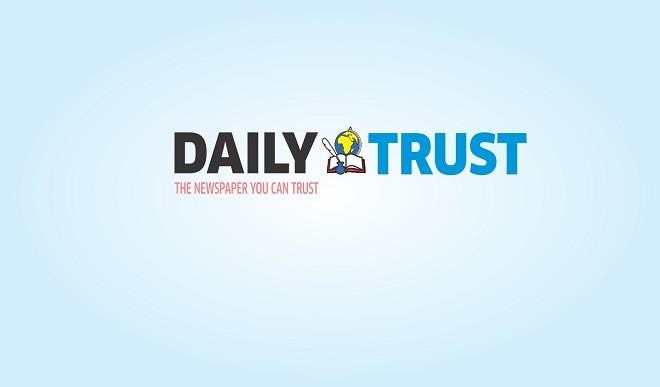2019: Lawyers brainstorm on electoral campaign funding
Last Thursday, professors of Law, Senior Advocates of Nigeria as well as other legal experts converged on Abuja to brainstorm on whether or not it is possible to monitor political party campaign expenditure ahead of the 2019 general elections. The event was the Azinge and Azinge Colloquium with the theme, ‘Anti-Corruption Project: Enforcement of Ceiling […]


Last Thursday, professors of Law, Senior Advocates of Nigeria as well as other legal experts converged on Abuja to brainstorm on whether or not it is possible to monitor political party campaign expenditure ahead of the 2019 general elections.
The event was the Azinge and Azinge Colloquium with the theme, ‘Anti-Corruption Project: Enforcement of Ceiling on Political Campaign Expenditure’.
It is in the 1999 Constitution as amended and the Electoral Act 2010 that political parties are not to spend large sums of money as campaign expenditure but these laws can only work if they can be enforced.
Globally, different countries have limited the expenditure and who can contribute to campaign expenditure. Canada and the USA prohibit donations from outside their countries.
In the first republic, political party campaign funds were contributed by friends. Many politicians who used their position to subvert people’s will were jailed for reckless spending.
During the 2015 general elections, the major political parties raised funds for campaigns and companies donated billions of Naira but the identities of these companies were shielded from the public. No political party was sanctioned. This raised questions on whether or not INEC monitored and recorded campaign expenses to invoke Section 91 of the Electoral Act 2010.
In his submission, JK Gadzama SAN said “If Obama had contested election in Nigeria, he might, most probably, have lost because he did not have money as his opponents.”
He therefore suggested a different agency to monitor whether a candidate exceeded expenditure limit.
Speaking on the sub-theme of ‘Limits to Political Campaign Expenditure’, Chief Adegboyega Awomolo (SAN) submitted that INEC lacked the technical manpower to monitor and track the spending of huge funds by political parties and their candidates.
He advocated for the creation of a separate agency from the electoral umpire that would monitor campaign financing with a view to bringing violators of the electoral act to book.
“INEC may have the will to monitor election expenses of political parties but lacks the capacity to do so,” he said.
Other participants also mentioned that INEC alone cannot handle the uncontrolled party finances in Nigeria to cover the 774 local government areas, hence it would require assistance from the Civil Society Organizations, EFCC and the Code of Conduct Bureau (CCB).
Prof. ABC Nwosu, chairman of the event said INEC can measure campaign expenditure through amounts spent on adverts at prime time and spectacular billboards which alone always exceed the stipulated limits.
“Not talking of political rallies where over 20 buses would be hired. All it required is courage on the part of INEC to establish a unit. Onus is on parties to show why,” he said.
He also mentioned nomination fees where a governorship aspirant obtains form for N20 million, wondering where a candidate will find the money without resorting to godfathers.
Prof. Nwosu lamented that the toxic influence of money on Nigeria’s electoral process was hindering patriotic Nigerians from participating in elections.
Mr. Eze Oyekrere, an activist, said that donations to candidates should be taxed, noting however that majority of agencies that should track campaign funds are working at cross purposes.
“We need a new agency to oversight campaign financing or strengthen INEC,” he said.
Some of the participants at the colloquium said many politicians believe that money does not only buy party ticket but also votes as well as court judgments. Hence they shop around for favourable judges instead of engaging in campaigns.
Another participant stated that the more money that is available to a political party, the more it can out do the other parties, thus falsifying the electoral process as they spend even up to the Supreme Court.
Senator Dino Melaye who represents Kogi West Senatorial District at the upper chambers of the National Assembly, described Nigerian politicians and electorate as “very greedy” in making the deployment of huge funds as basis for winning elections in the country.
His words: “The money that was meant to be invested in uninterrupted supply of electricity has been invested in election.”
The lawmaker said over the years, public funds that were appropriated for development projects were diverted to funding electoral campaigns.
In a rather bipartisan posture, Melaye criticised the All Progressives Congress (APC) and the Peoples Democratic Party (PDP) for the non-monitoring of campaign expenditures since the return of democratic rule in 1999.
He charged the electoral umpire to live up to its mandate of not only conducting polls, but monitoring the finances of political parties to guard against over spending during elections.
On his part, Jibrin Okutepa (SAN) urged INEC to bring its weight to bear on political parties that breach the ceiling placed on campaign expenditure.
The conveners of the event, Prof Azinge and his wife, Dr. Valerie, said the forthcoming 2019 general elections should be a test case for curbing excessive spending during elections in Nigeria.
